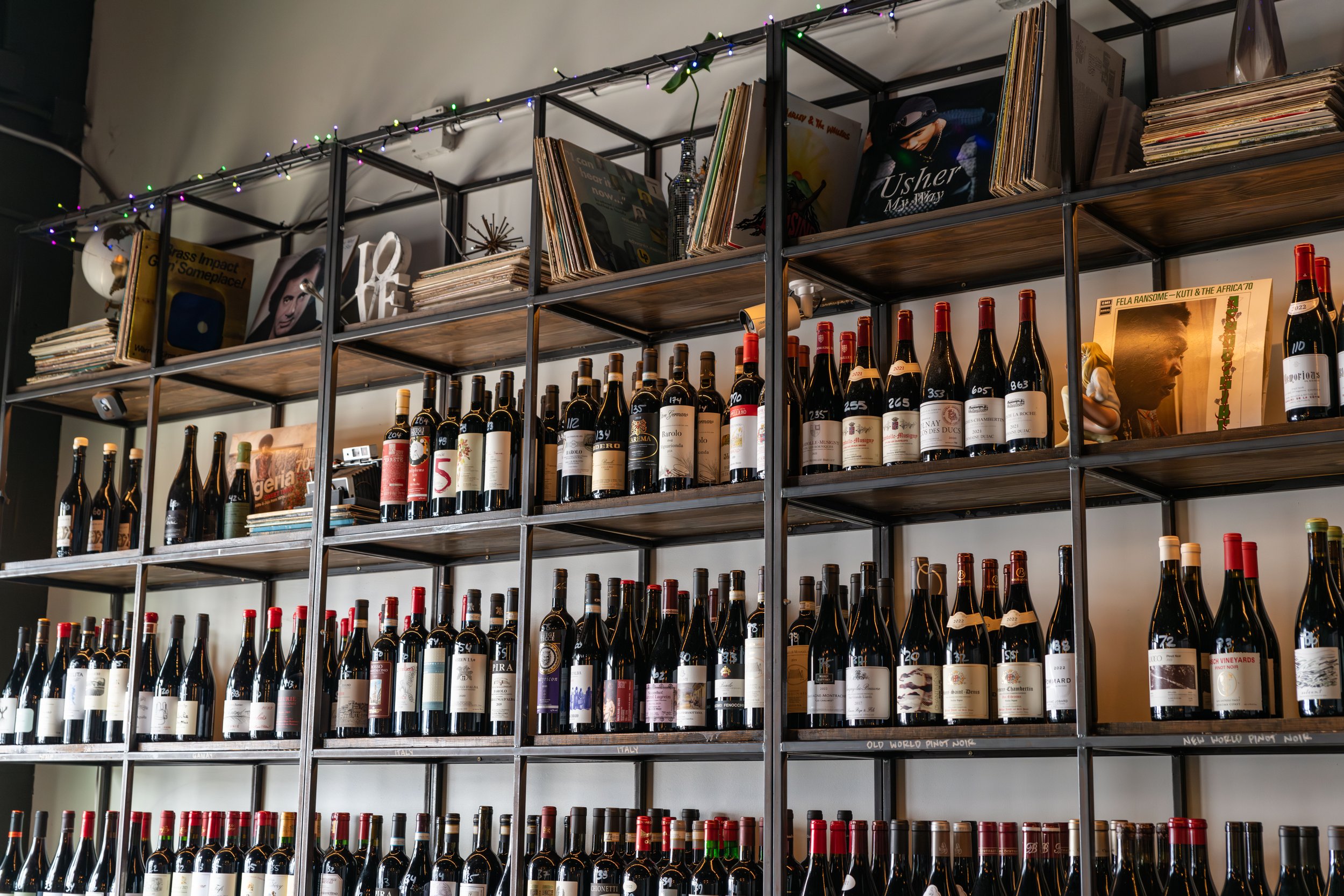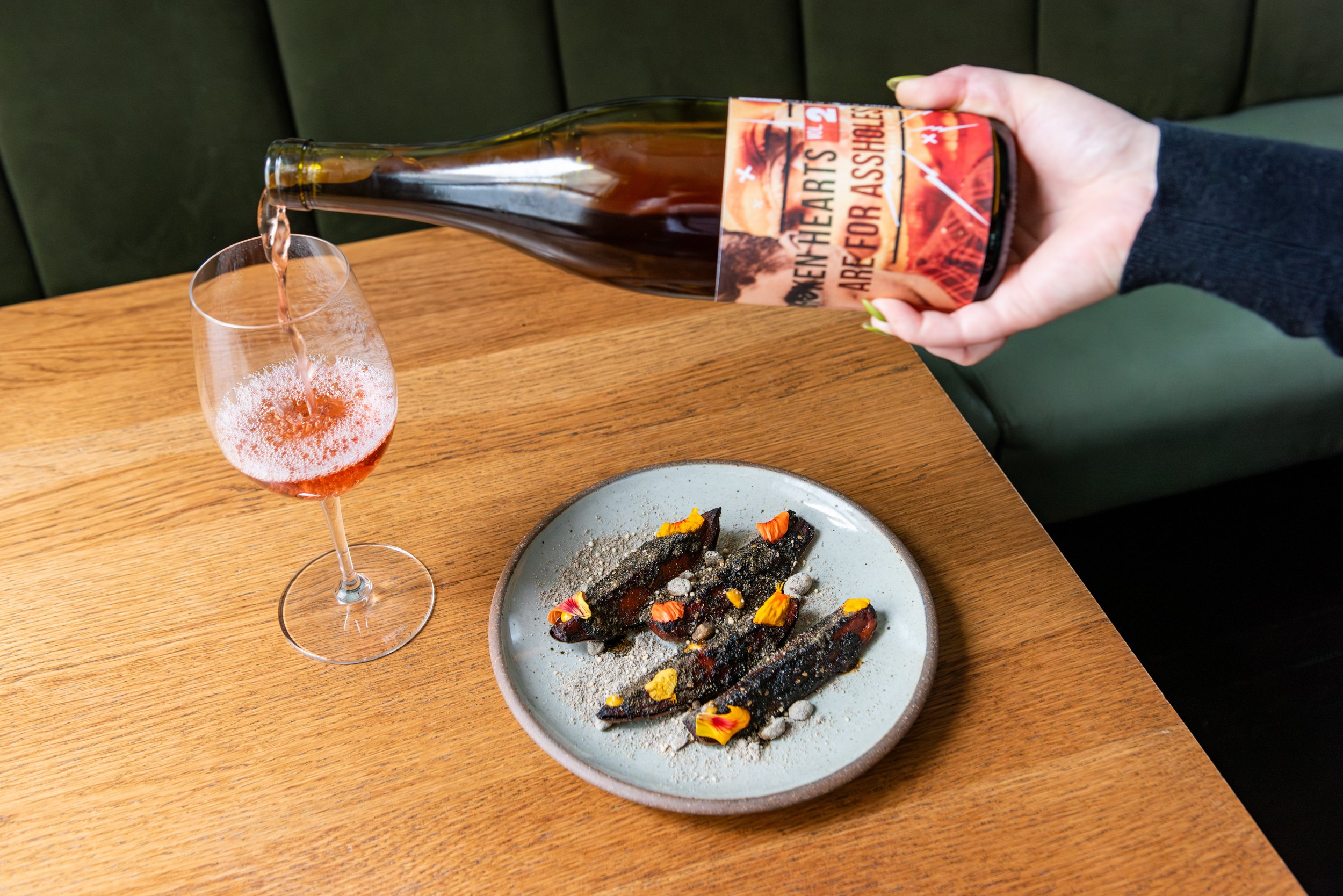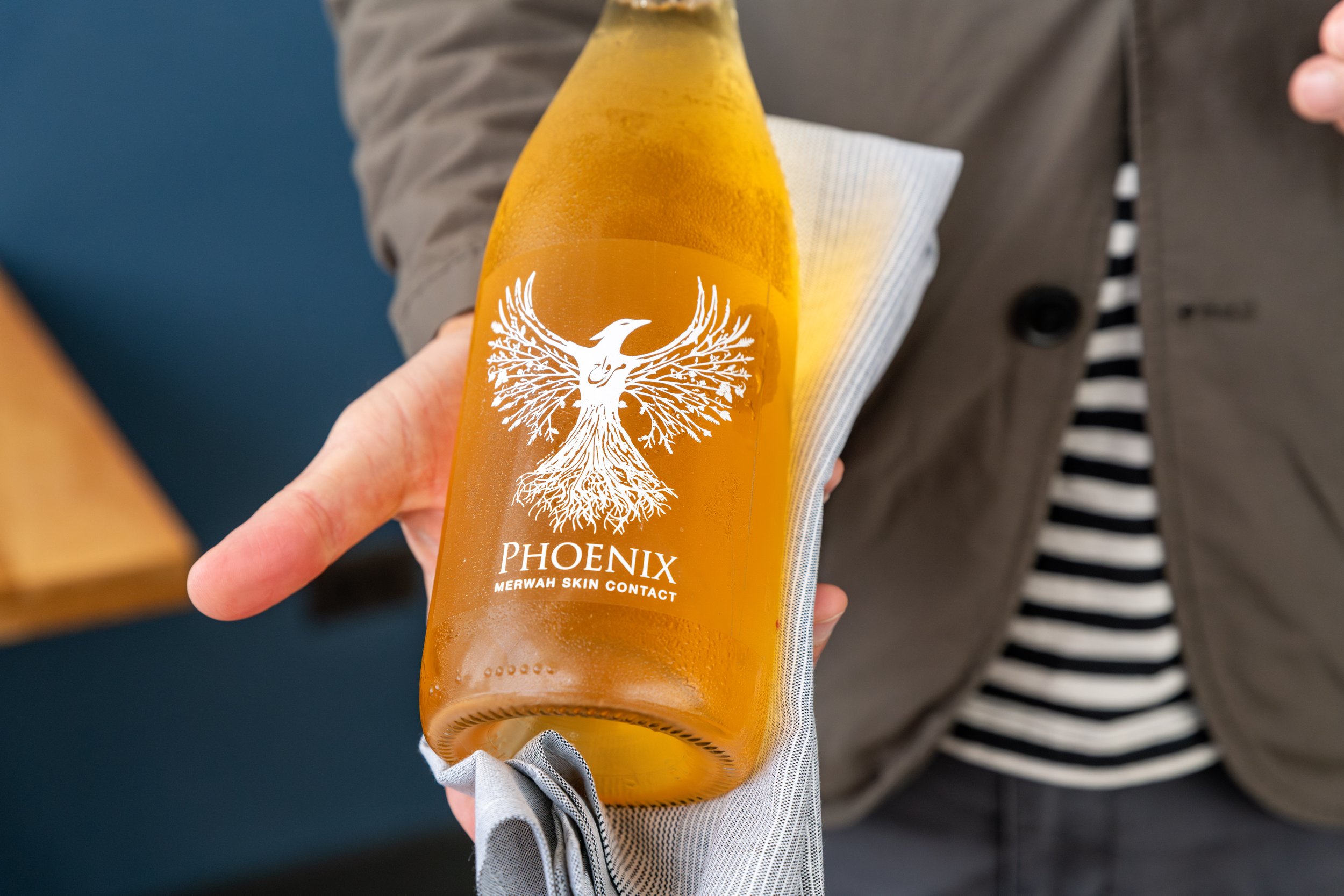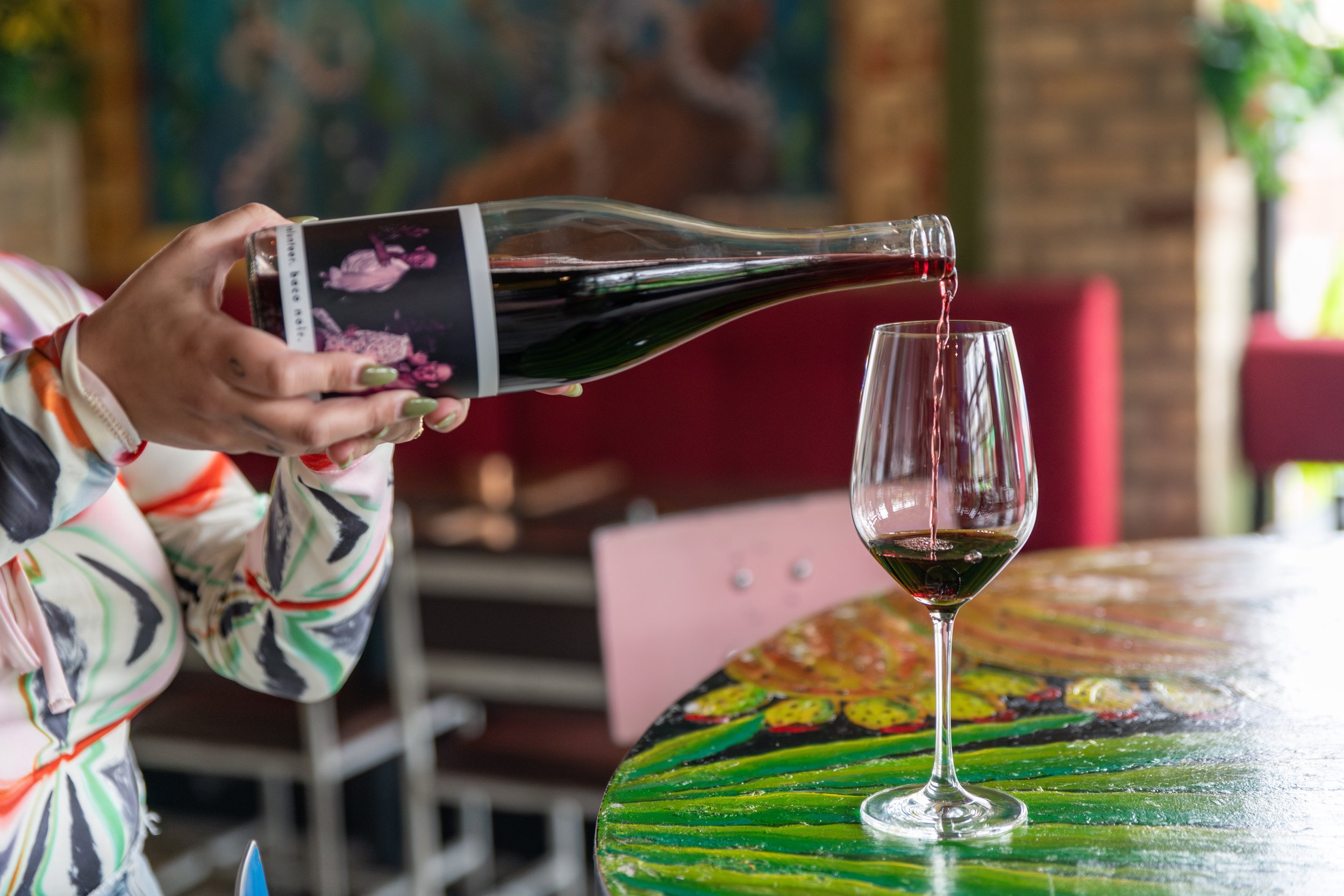Crushing It
Macarena Carrillo and Mariel Dalmau now host the most talked-about wine club in Miami—without spending a cent of their own money.
Macarena Carrillo and Mariel Dalmau
When BFFs Macarena Carrillo and Mariel Dalmau were preparing for their introduction to the Court of Master Sommeliers, they would often find themselves at corporate wine tastings feeling like the underdogs. Instead of being educated, the young women were treated as though they didn’t belong and questioned for their tastes.
So they brought together a group of like-minded friends for a wine study club where they could taste, talk, and share without judgement. “Wine is so steeped in history, it’s a never-ending hunt for knowledge,” Carrillo says.
As they continued to learn, they realized that Miami’s nightlife scene was stifling the progression of local wine culture. “You go to a bar, crush a few shots, then head to the clubs and get bottle service,” Carrillo says. “Miami also doesn’t have any ‘wine country,’ so the wine culture here is forced to be very traditional.” But with the growth of non-Miami natives moving down to open restaurants, more of a demand exists for unusual wines.
During a shift at Fooq’s restaurant, where they both worked as sommeliers, “Maca and Mari” got to talking about expanding their wine club. The playful conversation evolved into a flyer and an idea centered around raw wine. Using Fooq’s as their first location, Grape Crush by Natty Times launched as a ticketed event for about 30 people. It wasn’t a money-maker, just a place for them to practice and share their knowledge. Totally winging it, they poured a crémant, alpine nebbiolo, and rosado txakolina, and just kept pouring and pouring until the wine ran out. With each event, attendance morphed from an industry crowd to a larger, more diverse mix.
COVID-19 altered the whole model of Grape Crush. Tastings went from a ticketed to à la carte format so guests could choose who to sit with and for how long. “This was the major shift for Grape Crush,” Dalmau says. “We have found major success in this new format that it's now almost like a barrier to have it be ticketed.”
It was a big change from the early days, when the somms limited themselves to three wines and took on all the risk. But with à la carte, they do the purchasing through the hosting businesses. Carrillo and Dalmau send a list of up to nine wines and build relationships between the hosts and small distributors.
“The more places we do it, the more natural wines we put on their lists, the more people come back looking for it, so it increases the demand for natural wine,” Dalmau says.
She and Carrillo are aware of the fact that the natural wine movement comes with its own set of pretentiousness, similar to what they faced early on in their careers. “No matter the level of expertise or certifications we have, if you like it, then it’s a good wine,” Carrillo says. They vow to continue doing what they do, letting people know that wine is subjective, wine is exciting, and wine is a never-ending learning process.







Tips on building a wine list that works for everyone from Sommelier Thibaut Idenn of Alla Vita and Boka